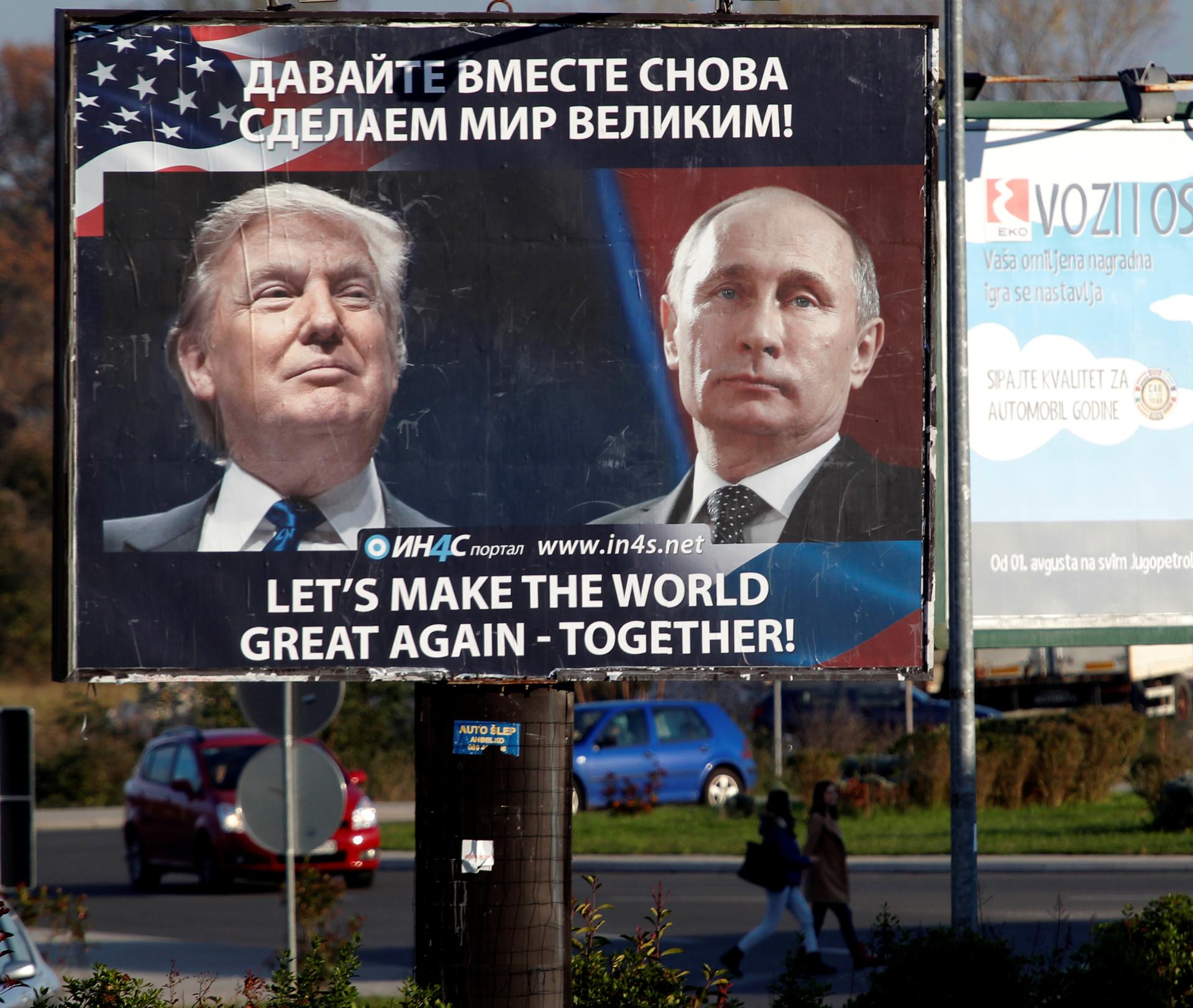Navigating post-truth politics in Russia and America
A billboard links the agendas of US President-elect Donald Trump and Russian President Vladimir Putin in Danilovgrad, Montenegro.
Moscow-born author Masha Gessen knows a thing or two about challenging autocratic regimes.
The journalist and author is a vocal critic of Russian President Vladimir Putin.
These days she sees some frightening parallels between Russia's leader and America's president-elect.
Donald Trump, she says, is intent on using the tools of democracy to unravel democracy.
"The temptation is to believe that [Trump] is not as bad as all that, that he didn't mean half of what he said, and that it's just going to be politics as usual, maybe a little bit different," Gessen says. "In my experience writing about Vladimir Putin, he laid out pretty much what he thought and what he wanted in his early interviews … Nobody wanted to listen. People wanted to project their ideas of what he ought to be."
It's no accident that Trump hasn't decisively stepped back from many of his main campaign themes, she adds.
"Trump is who he is," according to Gessen. "He ran for autocrat and he won."
The Russian-American journalist is the author of nine books, including "The Man Without a Face: The Unlikely Rise of Vladimir Putin."
She says Putin, unlike Trump, is not a charismatic leader.
"But their key similarity is their approach to power and their understanding of power," she notes. "They see power as a source of enrichment. They also see power as a source of personal affirmation. They also equate power with personal domination."
Comparisons to what Hungarian sociologist Bálint Magyar calls a "mafia state" are relevant for Russia and Trump's vision of the US, Gessen argues.
"Bálint uses the image of the family to explain how a mafia state works, and now we see Donald Trump come in, and it's a literal family," she says. "You don't even have to have the metaphor of the family because Donald Trump is bringing his literal family into running the country. It's very gangster-style."
And unfortunately, citizens in states where democracy is eroding tend to take too long to start resisting that process, according to Gessen.
Still, she isn't entirely pessimistic.
"I'm really hopeful about the number of protests that I've seen and the very decisive statements that people have made, including New York Mayor Bill de Blasio, who gave a terrific talk the other night about how New York City is going to continue to be New York City," she says. "It was very, very specific about setting down the line, and saying if there's a Muslim registry, we're not going to cooperate, if we're told to use our police to round up people for deportation, we're not going to cooperate."
The beacon of hope, according to Gessen, includes politicians, activists and journalists who double down on the current normal, before a new normal can overtake it.
Every day, reporters and producers at The World are hard at work bringing you human-centered news from across the globe. But we can’t do it without you. We need your support to ensure we can continue this work for another year.
Make a gift today, and you’ll help us unlock a matching gift of $67,000!
